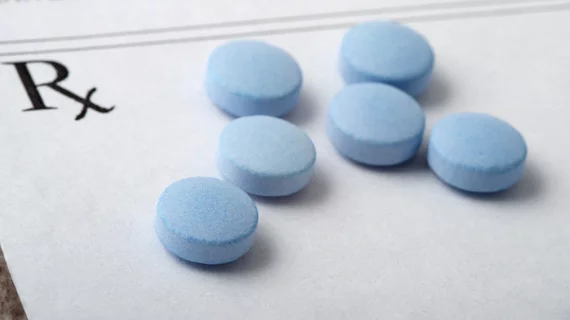Mark Cuban’s generic drug prices could save Medicare $3.6B
Medicare could save billions of dollars annually if it based its pricing the same way billionaire Mark Cuban has set pricing of his new generic drug company, according to a recent study from Harvard researchers.
Cuban’s Cost Plus Drug Company, which launched at the start of 2022, bases its drug prices on the cost of ingredients and manufacturing, plus a 15% margin, a $3 dispensing fee and a $5 shipping fee. The formula is such that sometimes the prices at Cost Plus are lower than insurers, including Medicare. Harvard researchers set out to determine the potential savings of Cost Plus’ pricing formula for Medicare Part D, the prescription medicine program of Medicare.
Researchers from Brigham and Women's Hospital and Harvard Medical School compared 99 generic drugs sold by Mark Cuban Cost Plus Drug Company (MCCPDC) to what Medicare paid for the same drugs in 2020. From there, they estimated potential savings if Medicare Part D paid MCCPDC prices.
By their estimate, Medicare could have saved a whopping $3.6 billion, or 37% of total spending, on 77 drugs if they had been purchased in the maximum quantity supplied by MCCPDC. If the drugs had been purchased at MCCPDC prices at the minimum quantity, Medicare would have saved $1.7 billion, or 18% of total spending, on 42 drugs.
The lower drug prices from MCCPDC’s direct-to-consumer model highlights the inefficiencies in the generic pharmaceutical distribution and reimbursement system, the authors noted in their study. Much of the added costs are due to administrative costs, with the system encompassing wholesalers, pharmacy benefit managers, pharmacies and insurers. Policy reforms could help reduce the costs of generic drug prices.
Researchers suggested policies that improve price transparency, increase competition, prevent annual price increases, and limit pharmacy and distribution costs could increase affordability of essential generic medicines for all Americans. They published their findings in Annals of Internal Medicine.
Cuban started his generic drug company in an effort to help shield consumers from inflated drug prices. Eighteen million Americans were recently unable to pay for at least one prescription medication for their household due to higher costs, according to a September 2021, Gallup poll. Another 1 in 10 Americans have skipped doses to save money, the study found. Cuban’s company can bring huge savings to Americans for life-saving medications.
"We will do whatever it takes to get affordable pharmaceuticals to patients," Alex Oshmyansky, CEO of MCCPDC, said at the time the company launched in January 2022. "The markup on potentially lifesaving drugs that people depend on is a problem that can't be ignored. It is imperative that we take action and help expand access to these medications for those who need them most."
Related Content:
Private health plans paid hospitals 224% more than Medicare in 2020
Specialty pharmacies offer more affordable drug prices than hospitals
AHA: Rising hospital expenses are 'unsustainable'
Mark Cuban jumps into the PBM space
Mark Cuban’s prescription drug company launches online pharmacy for affordable medications

